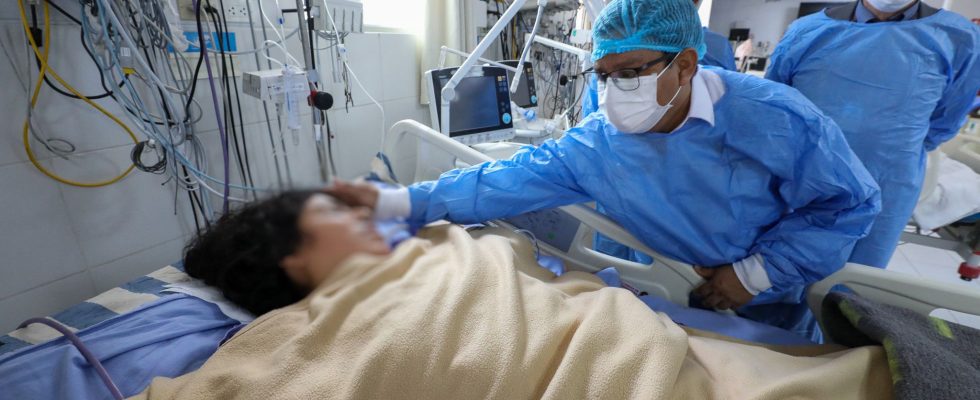It is the return of the state of health emergency in Peru, for at least three months. This time, due to a mysterious spike in the number of cases of Guillain-Barré Syndrome (GBS), which causes an acute crippling neuropathy that can lead to death. All the regions of the country – that is to say 25 – are concerned in this country of 33 million inhabitants. As of July 9, 191 cases have been detected since the start of the year, and four people have died.
“The national level health emergency is declared for 90 days due to the unusual increase in cases of Guillain-Barré syndrome,” the Peruvian Ministry of Health said in a statement. “There has been a significant increase in recent weeks which obliges us to take measures at state level to protect the health and life of the population,” Minister César Vásquez told the press.
Neurological disease caused by an infection
Guillain-Barré is a rare neurological disorder, most often post-infectious (that is to say, which develops after an infection). The immune system attacks the peripheral nervous system, the one that circulates information between the brain and the organs, and then causes progressive muscle weakness that occurs in two to four weeks and can affect the respiratory system.
One of its most common symptoms is tingling or lack of feeling, as well as a feeling of weakness and lack of strength in the extremities, rapid fatigue and muscle cramps at rest, specifies the High Authority of Health (HAS). The disease develops rapidly over a few days, and can lead to paralysis of the limbs, difficulty speaking or swallowing.
Although the disease usually resolves within a few weeks, “even in the best sanitary contexts, 3% to 5% of patients with Guillain Barré syndrome die of complications, such as paralysis of the muscles of respiration, sepsis, pulmonary embolism or cardiac arrest” explains the World Health Organization (WHO) on its website.
The cause of the increase in cases unknown?
Guillain-Barré syndrome is neither hereditary nor contagious, so it is difficult to identify the cause of this upsurge in cases. In a 2009 report, the French Agency for the Safety of Health Products (Afssaps) nevertheless specified that “in two thirds of cases the occurrence of Guillain-Barré syndrome is preceded within three weeks to a month by an episode acute viral or bacterial infections, in particular infections of the respiratory or digestive tracts”.
Certain diseases, such as Covid-19 for example, are thus known to trigger it, but also the Zikas virus according to the Pasteur Institute, characterized dare flu-like symptoms. Peru is currently devastated by an epidemic of Dengue since June, the worst since 1990, propagated in particular by the proliferation of tiger mosquitoes which transport it, itself favored by the torrential rains of Cyclone Yaku. The viral disease is suspected to be responsible for triggering GBS, but its main foci are concentrated in the South. Another lead could be the presence of a bacterium transmitted by meat, as had already been the case in 2019 with “Campylobacter jejuni” which had caused cases of GBS in South America.
The purpose of the state of emergency is to prevent the saturation of the country’s 1,200 intensive care beds (according to an estimate by the media La Republica). But it could also make it possible to unlock aid from the WHO to have access to necessary treatments such as immunoglobulin, which the Peruvian Ministry of Health says it does not have in sufficient quantities.
